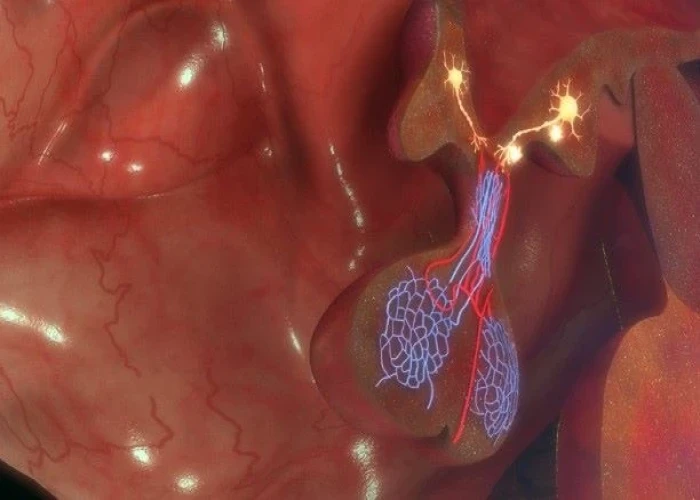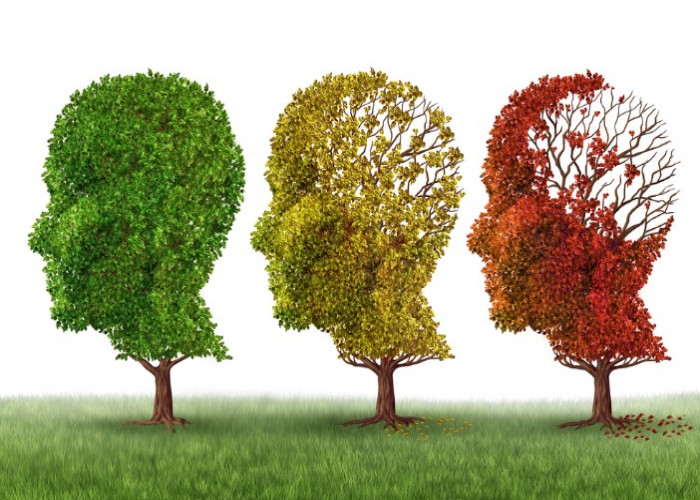 Welcome
Welcome
“May all be happy, may all be healed, may all be at peace and may no one ever suffer."
Dementia

Dementia is a broad term used to describe a group of symptoms associated with a decline in cognitive function and memory that interferes with an individual's ability to perform daily activities. Dementia is not a specific disease, but rather a collection of symptoms that can be caused by a variety of underlying conditions.
The most common cause of dementia is Alzheimer's disease, which accounts for approximately 60 to 80 percent of all cases. Other causes of dementia include vascular dementia, Lewy body dementia, Parkinson's disease dementia, and frontotemporal dementia, among others.
Symptoms of dementia can include memory loss, difficulty communicating, difficulty with problem-solving or decision-making, personality changes, and a decline in overall cognitive function. As the disease progresses, individuals may experience difficulty with daily activities, such as dressing, bathing, or eating.
Currently, there is no cure for dementia, but early diagnosis and treatment can help to manage symptoms and improve outcomes. Treatment may involve medications to manage symptoms and cognitive function, as well as supportive care, such as occupational or speech therapy.
Caring for an individual with dementia can be challenging, and support from family members, friends, and healthcare professionals is critical. Caregivers may benefit from education and training on how to manage the various challenges associated with dementia, as well as emotional and psychological support.
If you or a loved one is experiencing symptoms of dementia, it is important to seek medical attention to identify the underlying cause and develop a management plan.
Research Papers
Disease Signs and Symptoms
- Memory loss
- Difficulty with visual and spatial abilities, such as getting lost while driving
- Difficulty communicating or finding words
- Anxiety, agitation or restlessness
- Anxiety
- Strong depression
- Personality change
- Confusion (Hallucinations)
- Poor coordination
- Difficulty problem solving
- Difficulty with coordination and motor functions
Disease Causes
Dementia
Dementia is caused by damage to or loss of nerve cells and their connections in the brain. Depending on the area of the brain that's damaged, dementia can affect people differently and cause different symptoms.
Dementias are often grouped by what they have in common, such as the protein or proteins deposited in the brain or the part of the brain that's affected. Some diseases look like dementias, such as those caused by a reaction to medications or vitamin deficiencies, and they might improve with treatment.
Progressive dementias
Types of dementias that progress and aren't reversible include:
- Alzheimer's disease. This is the most common cause of dementia.
- Although not all causes of Alzheimer's disease are known, experts do know that a small percentage are related to mutations of three genes, which can be passed down from parent to child. While several genes are probably involved in Alzheimer's disease, one important gene that increases risk is apolipoprotein E4 (APOE).
- Alzheimer's disease patients have plaques and tangles in their brains. Plaques are clumps of a protein called beta-amyloid, and tangles are fibrous tangles made up of tau protein. It's thought that these clumps damage healthy neurons and the fibers connecting them.
- Vascular dementia. This type of dementia is caused by damage to the vessels that supply blood to your brain. Blood vessel problems can cause strokes or affect the brain in other ways, such as by damaging the fibers in the white matter of the brain.
- The most common signs of vascular dementia include difficulties with problem-solving, slowed thinking, and loss of focus and organization. These tend to be more noticeable than memory loss.
- Lewy body dementia. Lewy bodies are abnormal balloonlike clumps of protein that have been found in the brains of people with Lewy body dementia, Alzheimer's disease and Parkinson's disease. This is one of the more common types of progressive dementia.
- Common signs and symptoms include acting out one's dreams in sleep, seeing things that aren't there (visual hallucinations), and problems with focus and attention. Other signs include uncoordinated or slow movement, tremors, and rigidity (parkinsonism).
- Frontotemporal dementia. This is a group of diseases characterized by the breakdown of nerve cells and their connections in the frontal and temporal lobes of the brain. These are the areas generally associated with personality, behavior and language. Common symptoms affect behavior, personality, thinking, judgment, and language and movement.
- Mixed dementia. Autopsy studies of the brains of people 80 and older who had dementia indicate that many had a combination of several causes, such as Alzheimer's disease, vascular dementia and Lewy body dementia. Studies are ongoing to determine how having mixed dementia affects symptoms and treatments.
Other disorders linked to dementia
- Huntington's disease. Caused by a genetic mutation, this disease causes certain nerve cells in your brain and spinal cord to waste away. Signs and symptoms, including a severe decline in thinking (cognitive) skills, usually appear around age 30 or 40.
- Traumatic brain injury (TBI). This condition is most often caused by repetitive head trauma. Boxers, football players or soldiers might develop TBI.
- Depending on the part of the brain that's injured, this condition can cause dementia signs and symptoms such as depression, explosiveness, memory loss and impaired speech. TBI may also cause parkinsonism. Symptoms might not appear until years after the trauma.
- Creutzfeldt-Jakob disease. This rare brain disorder usually occurs in people without known risk factors. This condition might be due to deposits of infectious proteins called prions. Signs and symptoms of this fatal condition usually appear after age 60.
- Creutzfeldt-Jakob disease usually has no known cause but can be inherited. It may also be caused by exposure to diseased brain or nervous system tissue, such as from a cornea transplant.
- Parkinson's disease. Many people with Parkinson's disease eventually develop dementia symptoms (Parkinson's disease dementia).
Dementia-like conditions that can be reversed
Some causes of dementia or dementia-like symptoms can be reversed with treatment. They include:
- Infections and immune disorders. Dementia-like symptoms can result from fever or other side effects of your body's attempt to fight off an infection. Multiple sclerosis and other conditions caused by the body's immune system attacking nerve cells also can cause dementia.
- Metabolic problems and endocrine abnormalities. People with thyroid problems, low blood sugar (hypoglycemia), too little or too much sodium or calcium, or problems absorbing vitamin B-12 can develop dementia-like symptoms or other personality changes.
- Nutritional deficiencies. Not drinking enough liquids (dehydration); not getting enough thiamin (vitamin B-1), which is common in people with chronic alcoholism; and not getting enough vitamins B-6 and B-12 in your diet can cause dementia-like symptoms. Copper and vitamin E deficiencies also can cause dementia symptoms.
- Medication side effects. Side effects of medications, a reaction to a medication or an interaction of several medications can cause dementia-like symptoms.
- Subdural hematomas. Bleeding between the surface of the brain and the covering over the brain, which is common in the elderly after a fall, can cause symptoms similar to those of dementia.
- Brain tumors. Rarely, dementia can result from damage caused by a brain tumor.
- Normal-pressure hydrocephalus. This condition, which is caused by enlarged ventricles in the brain, can result in walking problems, urinary difficulty and memory loss.
Disease Prevents
Dementia
There's no sure way to prevent dementia, but there are steps you can take that might help. More research is needed, but it might be beneficial to do the following:
- Keep your mind active. Mentally stimulating activities, such as reading, solving puzzles and playing word games, and memory training might delay the onset of dementia and decrease its effects.
- Be physically and socially active. Physical activity and social interaction might delay the onset of dementia and reduce its symptoms. Aim for 150 minutes of exercise a week.
- Quit smoking. Some studies have shown that smoking in middle age and beyond might increase your risk of dementia and blood vessel conditions. Quitting smoking might reduce your risk and will improve your health.
- Get enough vitamins. Some research suggests that people with low levels of vitamin D in their blood are more likely to develop Alzheimer's disease and other forms of dementia. You can get vitamin D through certain foods, supplements and sun exposure.
- More study is needed before an increase in vitamin D intake is recommended for preventing dementia, but it's a good idea to make sure you get adequate vitamin D. Taking a daily B-complex vitamin and vitamin C also might help.
- Manage cardiovascular risk factors. Treat high blood pressure, high cholesterol and diabetes. Lose weight if you're overweight.
- High blood pressure might lead to a higher risk of some types of dementia. More research is needed to determine whether treating high blood pressure may reduce the risk of dementia.
- Treat health conditions. See your doctor for treatment for depression or anxiety.
- Maintain a healthy diet. A diet such as the Mediterranean diet — rich in fruits, vegetables, whole grains and omega-3 fatty acids, which are commonly found in certain fish and nuts — might promote health and lower your risk of developing dementia. This type of diet also improves cardiovascular health, which may help lower dementia risk.
- Get good-quality sleep. Practice good sleep hygiene, and talk to your doctor if you snore loudly or have periods where you stop breathing or gasp during sleep.
- Treat hearing problems. People with hearing loss have a greater chance of developing cognitive decline. Early treatment of hearing loss, such as use of hearing aids, might help decrease the risk.
Disease Treatments
Most types of dementia can't be cured, but there are ways to manage your symptoms.
Medications
The following are used to temporarily improve dementia symptoms.
- Cholinesterase inhibitors. These medications — including donepezil (Aricept), rivastigmine (Exelon) and galantamine (Razadyne) — work by boosting levels of a chemical messenger involved in memory and judgment.
- Although primarily used to treat Alzheimer's disease, these medications might also be prescribed for other dementias, including vascular dementia, Parkinson's disease dementia and Lewy body dementia.
- Side effects can include nausea, vomiting and diarrhea. Other possible side effects include slowed heart rate, fainting and sleep disturbances.
- Memantine. Memantine (Namenda) works by regulating the activity of glutamate, another chemical messenger involved in brain functions, such as learning and memory. In some cases, memantine is prescribed with a cholinesterase inhibitor.
- A common side effect of memantine is dizziness.
- Other medications. Your doctor might prescribe medications to treat other symptoms or conditions, such as depression, sleep disturbances, hallucinations, parkinsonism or agitation.
Therapies
Several dementia symptoms and behavior problems might be treated initially using nondrug approaches, such as:
- Occupational therapy. An occupational therapist can show you how to make your home safer and teach coping behaviors. The purpose is to prevent accidents, such as falls; manage behavior and prepare you for the dementia progression.
- Modifying the environment. Reducing clutter and noise can make it easier for someone with dementia to focus and function. You might need to hide objects that can threaten safety, such as knives and car keys. Monitoring systems can alert you if the person with dementia wanders.
- Simplifying tasks. Break tasks into easier steps and focus on success, not failure. Structure and routine also help reduce confusion in people with dementia.
Disease Diagnoses
Disease Allopathic Generics
Disease Ayurvedic Generics
Disease Homeopathic Generics
Disease yoga
Dementia and Learn More about Diseases

Mesothelioma

Muscle cramp

Pituitary tumors

Soy allergy

Color blindness

Ear infection (middle ear)

Drug allergy

Malignant hyperthermia
Dementia, Lewy body dementia, Vascular dementia, Dementia treatment, ডিমেনশিয়া
To be happy, beautiful, healthy, wealthy, hale and long-lived stay with DM3S.
